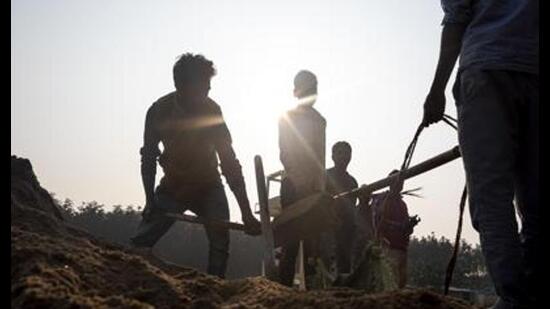India@100: Plan to face the four big challenges
There are some inescapable trends that are affecting the world. The big four are: Demographics, climate, technology and geopolitics and reemergence of blocks
Who would have thought back in 1966, when Tata Consultancy Services started, that today the $148 billion foreign earnings of the information technology (IT) services industry will pay for India’s oil bill of $110 billion? As we prepare to celebrate 100 years of Independence, we must ask: Are we sowing the kind of corporate seeds that will equip us well for the next 25 years? What will the world be like in 2047?

There are some inescapable trends that are affecting the world. The big four are: Demographics, climate, technology (especially automation and its impact on jobs) and geopolitics and reemergence of blocks. So, looking at 2047 cannot be just extrapolating the past, it must be imagining the implications of these trends on countries and companies. After considering these implications, we must act on them. Some of these changes may militate against the existing patterns of trade in goods and services. Will the IT services industry stay relevant? What important new areas will open up? To be able to truly celebrate its 100th year of Independence, India needs to prepare well.
Demographics will change the look of many parts of the developed world. Population decline will be witnessed by Japan, Italy, Germany, and China, other countries such as the United Kingdom and France will find their population plateauing. Even India will be close to its peak. Population growth will shift largely to Africa with all the consequential implications on immigration and skilling.
If we take Japan’s example, its population will reduce by 27 million people (127 million to 100 million), its average age increasing to nearly 55 with 38% of its population over 65 in 2050. This will have implications on pensions, the working population, health care provision and even the nature of consumer demand in Japan. The average age in Italy, Germany and China will be above 48. The nature of demand and opportunity will change. Health care spending will become the second highest expenditure category, after accommodation, for those above 65. What are the different components of this health care? Where may India participate and how? How will old age tourism differ from normal tourism?
Should India’s airports and hotels become wheelchair friendly, and enclaves be created where old people can spend two to three months a year in India; what could remote caregiving look like (through monitors combined with drones and robots)? On the other hand, in India, if women’s participation in the workforce doubles to 60%, how will we look after the 100 million children in the ages of 0-4? How do we industrialise quality creches?
Climate will create transitional challenges and will require action on multiple fronts. How are we equipped to move forward? Which is the coordinating ministry for the net-zero transition? Would we need a new Goods and Services Tax (GST)-type council to coordinate between the Centre and the states? Do we need a team for evaluating how to take advantage of the market opportunities that arise and address existing market failures in different parts of the ecosystem? Can we even address the massive extent of mispricing of depleting assets such as water and power?
Jobs will continue to be India’s foremost need. Given the age of our workforce, I have often argued for education — school and adult and skilling. However, the need to have a plan to understand the nature of the world in 25 years and the opportunities that arise will be critical. What jobs will automation kill? Have we done the appropriate triage so that the government does not support yesterday’s industries?
The private sector may make its decisions, but the government should be encouraging the development of skills and a workforce that is able to participate in the opportunities of the future. Covid-19 introduced the term frontline workers — the terms of trade for these workers need a change to attract the best to these professions. The H1B visas may be awarded to health care providers in 25 years, not to IT workers. The United States (US) today has 22 million people working in health care and the per capita spending on those above 65 years is $22,000, of which $6,700 is spent by the individual. How might we access it?
Finally, Russia’s invasion of Ukraine has caught us flatfooted. The invasion is causing havoc for our economy — oil prices, foreign outflows, impeding divestment, straining our fiscal — but we are dependent on Russia for arms even though it is irrelevant economically. Russia has moved closer to China and an axis of China, Russia and Pakistan is bad for us. Yet we abstain from voting in the United Nations on Ukraine.
It’s amazing to see how Israel navigates towards its interest and the world only us asks about our position. Nations have interests not friends, and at least for technology, our interests lie solidly with the US, as the other technology leader China is hardly dependable. We need a major foreign policy reset to navigate the emerging geopolitical alignments. In future, we should reduce dependence on Russia and China, shift military purchases to the US and Western Europe (so that they value us more), and partner with the US to develop our technological skills and capabilities.
To truly celebrate 100 years of Independence, we need to ensure that Indians are well equipped to take advantage of the arising opportunities and our women can participate fully in the workforce. This needs a reset in our thinking on multiple fronts and the Prime Minister’s call to create a large team to prepare us for 2047 is an inspired decision. We should act on it.
Janmejaya Sinha is chairman, BCG India The views expressed are personal
Continue reading with HT Premium Subscription




